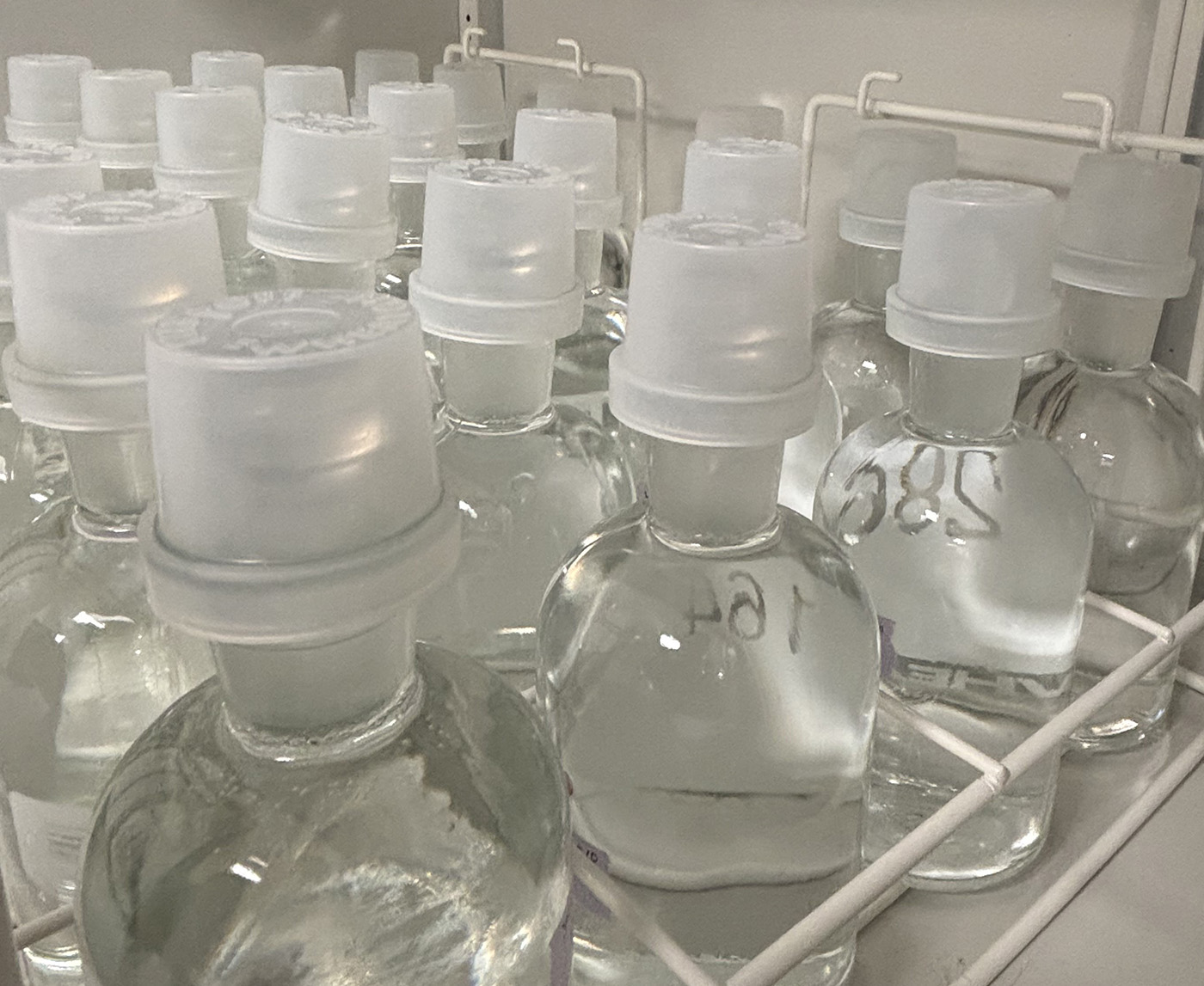Summary
The OECD 302B inherent biodegradability test determines the inherent biodegradability of a material by measuring the dissolved organic carbon or chemical oxygen demand in the system. This test is typically used for materials that are not readily biodegradable. The test lasts for 28 days, but prolonged exposure of the test materials to microorganisms is allowed.
The OECD 302B Testing Method
The test substance is exposed to activated sludge from a domestic wastewater treatment plant for 28 days. During this test, the microorganisms in the sludge will interact with the test substance to help it degrade. This test measures the amount of dissolved organic carbon (DOC) that has been removed or the chemical oxygen demand (COD). The degradation percentage is calculated as a ratio of DOC removal to original DOC loaded, or COD removal to original COD dosed.
OECD 302B is appropriate for highly soluble materials (> 50 mg DOC/L), non-volatile, and non-absorbing materials. The test is considered valid if the reference compound reaches 70% degradation within 14 days. Normally, >70% degradation is regarded as inherently, ultimately biodegradable.
Here are some additional details of the OECD 302B test method:
- Test substance requirement
- Soluble in water (>50mg DOC/L)
- Low vapor pressure (non-volatile)
- Does not significantly adsorb on glass surfaces
- Will not be lost by foaming from the test solution
- Does not inhibit bacteria at the concentration tested
- Measurement: DOC or COD
- Temperature: 20-25C
- pH: 6.5-8.0
- Reference substance: Ethylene glycol, diethylene glycol, lauryl sulfonate, or aniline
- Test substance dosage: 50-400mg DOC/L (100-1000 COD/L)
- Inoculum dosage: 0.2-1.0g/L of total suspended solids by activated sludge
- Ensure TSS/L and DOC/L are between 2.5:1 – 4.0:1
- Duration: Up to 28 days, but test can be prolonged if microbial adaption occurs in the final days
- Reactors: 1-5L cylindrical glass vessels
- Number of reactors: 1-2 for test substance, 1-2 for blank control, 1 for reference control
- Sampling frequency
- 3h ± 30 mins after addition of the test substance to estimate any adsorption of it by the AS
- 4x between days 1-27
- Twice on day 27 and day 28, or the last two days if the test is terminated earlier
- Test validity
- Reference compound reaches 70% degradation within 14 days
- The removal of the test substance takes place gradually (as an indicator of biodegradation instead of a physico-chemical process, which would generally be faster).
Aropha is Here for Your OECD 302B Testing Needs
At Aropha, we strive to provide our customers with highly accurate, streamlined biodegradability testing. We can test a wide range of products, from lubricants to personal care products, and can provide you with the information you need to improve your formulations or substantiate biodegradability claims. With our combination of AI-driven simulations and lab biodegradability testing, we are here to serve your project from start to finish.
Contact our team today to see what we can do for you!
OECD 302B Requirement and Applicability
Different testing methods are applicable for materials with different properties. Below is a summary of the applicability of OECD 302B. Please check our Method Selection Guide to select the most appropriate method for your materials. You can also find the applicability for many other methods in our Resource Center.| Test | Analytical method | Sample info required * | Poorly soluble | Volatile | Adsorbing |
|---|---|---|---|---|---|
| OECD 302B Zahn-Wellens/EMPA | DOC or COD | Organic carbon content* or COD | +/- | - | - |
*“Sample info required” is the information needed to calculate the biodegradation percentages. This must be available for a selected method.
*“Organic carbon content” is the ratio of the organic carbon weight to the weight of the sample. It can be calculated by the sample formula (e.g., acetic acid C2H4O2, carbon content is 12*2/(12*2+1*4+16*2)=40%). Try our Online C% Calculator. If the formula is unknown, we can send the sample out to a third party lab for you for analysis (normally $110 with a 10-day turnaround time).
*”COD”: we provide COD analysis at Aropha.
Pricing
$899/sample for High-Throughput Screening$1599/sample for Biodegradability Certification

